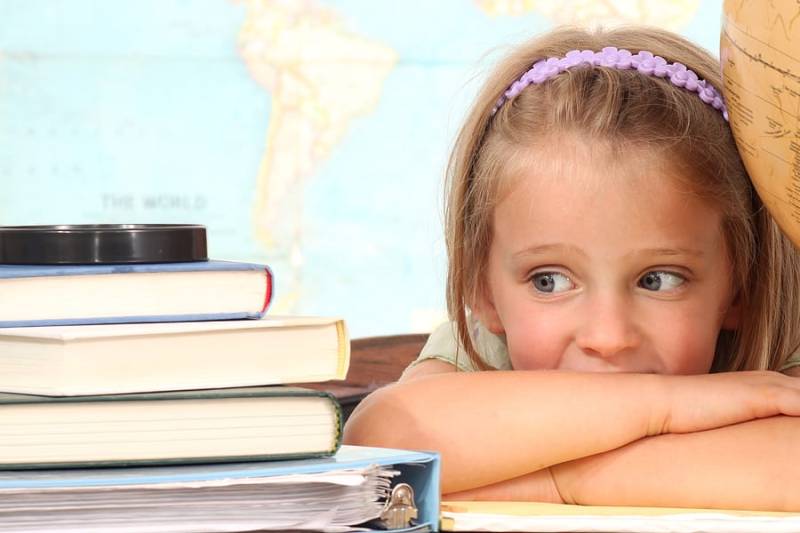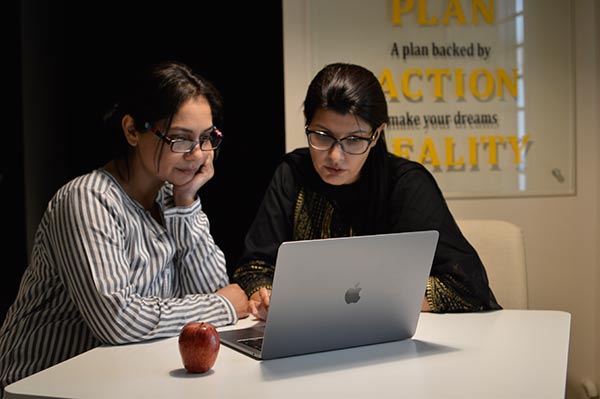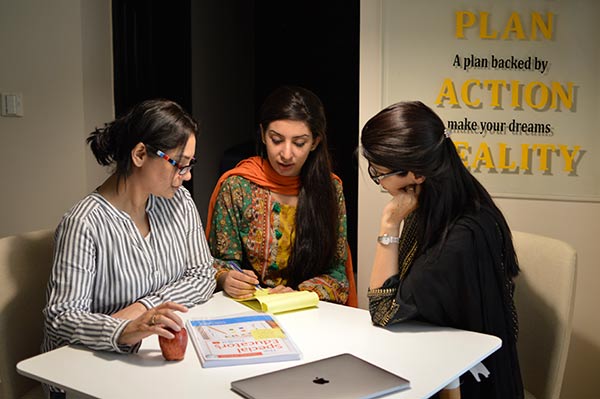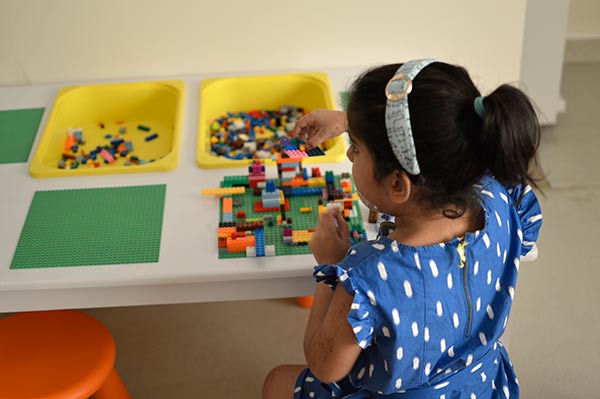
Dyslexia is not new. We have heard the term before, but have chosen not to give much precedence to it. In Pakistan, approximately 12 million children have dyslexia. Although the statistic is alarming, our practice of denouncing mental illness has halted necessary progress. Having studied Psychology at an undergraduate level, I was keen to destigmatize this ‘disorder’ for good, at least in Pakistan. Speaking to Fakher Tahir, a certified Orton Gillingham Dyslexia Specialist at InspirEducation: The Bridge School, Islamabad, I probed the issue to its core.
Q: Give our readers your background.
I am Fakher Tahir, a certified Orton Gillingham Dyslexia Specialist from Dyslexia Training Institute in California, United States. I am a Registered Behaviour Technician (RBT) from the Behaviour Analyst Certification Board (BACB) in the United States and have recently received my Individual Educational Plan (IEP) Consultant certification from Montana State University of Billings. I currently work as the Executive Director at InspirEducation: The Bridge School.

Q: How would you define dyslexia?
Dyslexia is a neurological disorder characterised by learning difficulty. A child struggles with spelling, reading and phonological awareness. They also have a hard time comprehending reading passages.
Q: Share a few facts about dyslexia unknown to people today.
Dyslexia is a common learning difficulty. Individuals demonstrate strong ability to see and think outside the box. They are creative learners with high IQ and only use the right side of their brain to process language, while non-dyslexic learners utilise three areas of their left side of the brain.
Q: What stigmas are attached to this condition in Pakistan?
Part of the problem in Pakistan is the perpetuated myth that dyslexia is a disease. That is simply not true. Children with dyslexia experience unusual difficulty with reading and spelling – nothing more, nothing less. It is heartbreaking to witness that we perceive them as lazy, dumb and irresponsible. Most children are denoted as nalaik. I would like proclaim that they are, in fact, the most creative individuals out there.

Q: What are some of the key problems (social, intrapersonal and interpersonal) that children and adults with dyslexia face?
Dyslexia affects not just the academic skills of a child but also causes social and emotional disturbance.
Q: When in the company of dyslexic individuals, what should we as educationists and society refrain from doing?
We have a huge responsibility on our shoulders to facilitate and accommodate our dyslexic children as much as possible. We can support them with love and care. Learn to modify their work routine if required; give them extra time in their assignments and tasks and ignore their spelling mistakes. Encourage their efforts and keep motivating them.
Q: Is our present school system responsible for further exacerbating the problem?
Yes, it may aggravate as a result of mishandling and ignorance.

Q: What qualities are essential to efficiently and effectively deal with the sufferers of dyslexia?
Be consistent – daily drillings of their lesson plans is mandatory. Accommodations in schools, slow and clear instructions and larger font sizes for reading passages are basics to get them started. Give them the time they need during class work and help them with their homework. Tell them that it is okay to make mistakes.
Q: As someone who practices dyslexia management, has the outcome of this learning deficit been effective in your experience?
Yes – very much so.
Q: What have you learned as a practicing dyslexia professional in Pakistan?
I have noticed that children have more awareness about their struggles than their guardians do. We must arrange awareness workshops and through this platform, I request parents to seek home plans from concerned institutions and help centres.
Q: What can we do better?
I am proud to say that as a country, we are stepping forward each day and that is what counts.
Q: Give our readers your background.
I am Fakher Tahir, a certified Orton Gillingham Dyslexia Specialist from Dyslexia Training Institute in California, United States. I am a Registered Behaviour Technician (RBT) from the Behaviour Analyst Certification Board (BACB) in the United States and have recently received my Individual Educational Plan (IEP) Consultant certification from Montana State University of Billings. I currently work as the Executive Director at InspirEducation: The Bridge School.

Q: How would you define dyslexia?
Dyslexia is a neurological disorder characterised by learning difficulty. A child struggles with spelling, reading and phonological awareness. They also have a hard time comprehending reading passages.
Q: Share a few facts about dyslexia unknown to people today.
Dyslexia is a common learning difficulty. Individuals demonstrate strong ability to see and think outside the box. They are creative learners with high IQ and only use the right side of their brain to process language, while non-dyslexic learners utilise three areas of their left side of the brain.
Q: What stigmas are attached to this condition in Pakistan?
Part of the problem in Pakistan is the perpetuated myth that dyslexia is a disease. That is simply not true. Children with dyslexia experience unusual difficulty with reading and spelling – nothing more, nothing less. It is heartbreaking to witness that we perceive them as lazy, dumb and irresponsible. Most children are denoted as nalaik. I would like proclaim that they are, in fact, the most creative individuals out there.

Q: What are some of the key problems (social, intrapersonal and interpersonal) that children and adults with dyslexia face?
Dyslexia affects not just the academic skills of a child but also causes social and emotional disturbance.
Q: When in the company of dyslexic individuals, what should we as educationists and society refrain from doing?
We have a huge responsibility on our shoulders to facilitate and accommodate our dyslexic children as much as possible. We can support them with love and care. Learn to modify their work routine if required; give them extra time in their assignments and tasks and ignore their spelling mistakes. Encourage their efforts and keep motivating them.
Q: Is our present school system responsible for further exacerbating the problem?
Yes, it may aggravate as a result of mishandling and ignorance.

Q: What qualities are essential to efficiently and effectively deal with the sufferers of dyslexia?
Be consistent – daily drillings of their lesson plans is mandatory. Accommodations in schools, slow and clear instructions and larger font sizes for reading passages are basics to get them started. Give them the time they need during class work and help them with their homework. Tell them that it is okay to make mistakes.
Q: As someone who practices dyslexia management, has the outcome of this learning deficit been effective in your experience?
Yes – very much so.
Q: What have you learned as a practicing dyslexia professional in Pakistan?
I have noticed that children have more awareness about their struggles than their guardians do. We must arrange awareness workshops and through this platform, I request parents to seek home plans from concerned institutions and help centres.
Q: What can we do better?
I am proud to say that as a country, we are stepping forward each day and that is what counts.
